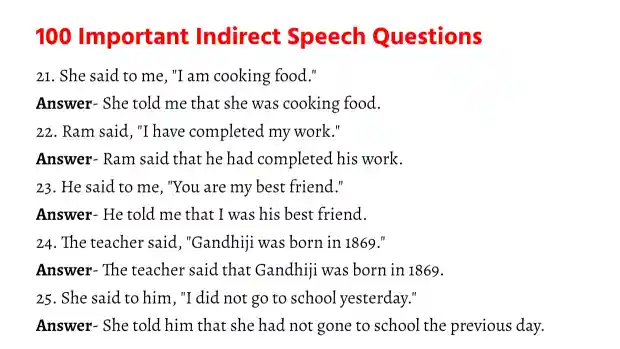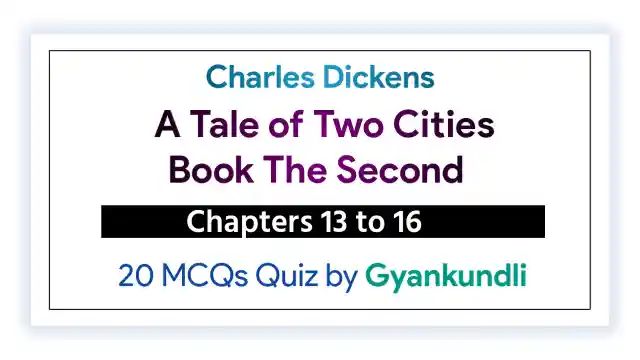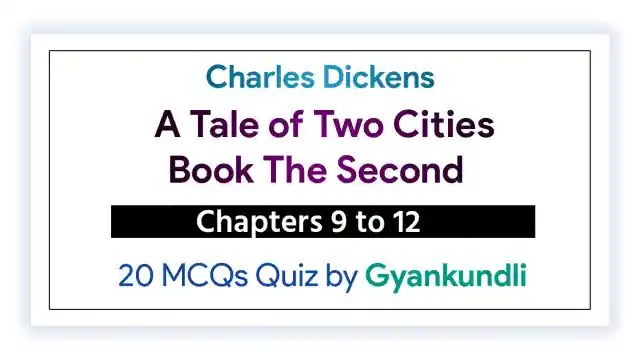Mastering the English language can be a rewarding journey, but it’s not without its challenges. Even the most proficient speakers can fall prey to common mistakes that subtly slip into everyday conversations and writing. In this comprehensive guide, we’ll dissect these linguistic pitfalls and offer insights into rectifying them. Let’s navigate through the maze of language intricacies and shed light on the often overlooked but pervasive “Common Mistakes in English.”
Common Mistakes in English: 1. Misplaced Apostrophes
Apostrophes, those seemingly innocuous punctuation marks, often become culprits in distorting the intended meaning of sentences. Understanding when and where to use them is pivotal in avoiding one of the most common mistakes in written English.
When dealing with possessive forms, confusion arises between “its” and “it’s.” “Its” is the possessive pronoun, denoting ownership, while “it’s” is the contraction of “it is” or “it has.” The misplaced use of these two can lead to sentences like “The dog wagged it’s tail,” where the intended possessive form distorts the meaning.
Possessive forms of nouns also frequently cause trouble, particularly when dealing with singular and plural nouns. It’s crucial to differentiate between “dog’s bone” (indicating one dog) and “dogs’ bones” (indicating bones belonging to multiple dogs).
Contractions can be a source of confusion when not used appropriately. “You’re” is the contraction for “you are,” while “your” is the possessive form of “you.” Failing to distinguish between these two can result in sentences like “Your going to love this,” where the intended contraction is omitted.
To navigate this apostrophe minefield effectively, remember that apostrophes are not used to form plurals. Incorrectly placing them in plural forms, as in “apple’s for sale” instead of “apples for sale,” is a common oversight.
The takeaway is clear: master the distinctions between possessive pronouns, contractions, and possessive forms of nouns to eliminate misplaced apostrophes from your writing. By doing so, you’ll enhance the precision and clarity of your written communication.
Common Mistakes in English: 2. Homophones and Homonyms
Navigating the labyrinth of homophones and homonyms in English can be a linguistic challenge. These words, though sounding similar or even identical, carry distinct meanings. Misusing them can lead to confusion and unintentional humor. Let’s unravel the intricacies of these language traps.
-
Their, There, They’re:
One of the most notorious homophone trios, “their,” “there,” and “they’re” frequently perplex writers. “Their” is a possessive pronoun indicating ownership, as in “Their house is beautiful.” “There” refers to a location, such as “The park is over there.” “They’re” is a contraction of “they are,” as in “They’re going to the movies.”
-
To, Too, Two:
Another set causing frequent mix-ups, “to,” “too,” and “two” have distinct uses. “To” is a preposition, as in “I’m going to the store.” “Too” means also or excessively, as in “I want to come too.” “Two” is the numerical equivalent of 2, as in “Two birds were on the branch.”
-
Accept, Except:
These homophones often trip up writers. “Accept” is a verb meaning to receive, as in “She will accept the award.” “Except” is a preposition indicating exclusion, as in “Everyone attended the party except Sarah.”
-
Affect, Effect:
A common source of confusion, “affect” is a verb, often used to describe influence, as in “The weather can affect your mood.” “Effect” is a noun denoting a change that occurred, as in “The new policy had a positive effect.”
-
Compliment, Complement:
These words sound alike but serve different purposes. “Compliment” is a noun or verb expressing praise, as in “She received a compliment on her presentation” or “I complimented his artistic skills.” “Complement” is a noun referring to something that completes or goes well with something, as in “The wine is a perfect complement to the meal.”
-
Its, It’s:
Returning to the apostrophe challenge, “its” is the possessive form of “it,” as in “The cat licked its paw.” Meanwhile, “it’s” is the contraction of “it is” or “it has,” as in “It’s a beautiful day.”
Mastering these homophones enhances the precision of your writing and ensures that your intended meaning remains intact. Keep these distinctions in mind to navigate the often tricky terrain of homophones and homonyms effectively.
Common Mistakes in English: 3. Dangling Modifiers
Dangling modifiers, seemingly innocent structures, can transform sentences into unintentional comedy or, worse, convey unclear meanings. Understanding how to properly place modifiers is crucial for maintaining clarity and coherence in your writing.
-
Definition of Dangling Modifiers:
A dangling modifier is a phrase or clause that is not clearly or logically related to the word it’s intended to modify. When the intended subject is missing or unclear, the modifier dangles, leading to confusion.
-
Example of a Dangling Modifier:
Consider this example: “Running late for the meeting, the car keys were nowhere to be found.” In this case, the modifier “Running late for the meeting” is dangling, as it’s unclear who or what is running late.
-
How to Correct Dangling Modifiers:
To rectify dangling modifiers, ensure that the subject of the modifying phrase is clear and logically connected to the rest of the sentence. In the above example, you can revise it to say, “Running late for the meeting, I couldn’t find the car keys.”
-
Avoiding Ambiguity:
Dangling modifiers often lead to ambiguity. For instance, the sentence “Having finished my book, the movie started” leaves the reader wondering who finished the book. To clarify, you can rephrase it as “Having finished my book, I started the movie.”
-
Prepositional Phrases as Modifiers:
Dangling modifiers frequently occur with prepositional phrases. For instance, “In my pajamas, the cookies were baked for the party” implies that the cookies are in pajamas. The correction could be “In my pajamas, I baked the cookies for the party.”
-
Participial Phrases as Modifiers:
Participial phrases, often used as modifiers, can lead to dangling constructions. In the sentence “Sitting on the windowsill, the view of the city was breathtaking,” the participle “Sitting” lacks a clear connection to the subject. A revision could be “Sitting on the windowsill, I found the view of the city breathtaking.”
-
Maintaining Clarity:
Paying attention to the logical flow of your sentences ensures that modifiers are correctly placed. Before finalizing your writing, review sentences containing modifiers to guarantee they are logically and grammatically sound.
-
Avoiding Ambiguous Pronouns:
Dangling modifiers can also result in ambiguous pronoun references. In the sentence “Hiking through the forest, the birds seemed more vibrant,” it’s unclear who or what is hiking. A revision could be “While hiking through the forest, I noticed that the birds seemed more vibrant.”
Mastering the art of placing modifiers ensures that your writing conveys the intended meaning without unintentional humor or confusion. By actively addressing dangling modifiers, you contribute to the overall clarity and coherence of your prose.
Common Mistakes in English: 4. Double Negatives
In many languages, double negatives are used to emphasize negation, creating a stronger negative statement. However, in English, the use of double negatives results in the cancellation of the negatives, leading to an unintended positive meaning. Navigating this linguistic quirk is essential for conveying accurate information.
-
Definition of Double Negatives:
A double negative occurs when two negative elements are used in the same clause, inadvertently creating a positive meaning. It’s crucial to recognize and rectify these constructions to avoid ambiguity.
-
Common Examples:
Examples of double negatives include phrases like “I don’t need no help” or “She can’t find her keys nowhere.” In these instances, the double negative undermines the intended negative meaning.
-
How to Correct Double Negatives:
Correcting double negatives involves removing one of the negative elements to maintain the intended meaning. The previous examples can be revised as “I don’t need any help” and “She can’t find her keys anywhere.”
-
Maintaining Clarity:
Double negatives can introduce confusion into your writing, as they may convey the opposite of what you intend. By consistently using a single negative, you ensure that your statements are clear and accurately reflect your intended meaning.
-
Common Double Negative Structures:
Double negatives often appear in certain sentence structures, such as using “no” or “none” with a negative verb. For example, “I don’t want none” should be corrected to “I don’t want any.”
-
Recognizing Informal Usage:
Double negatives are more prevalent in informal speech and certain dialects. While they might be acceptable in casual conversations, formal writing demands precision and adherence to standard grammar rules.
-
Ambiguity in Negative Constructions:
Double negatives can create ambiguity in negative constructions. For instance, the sentence “I can’t not mention it” may puzzle readers. A revision to “I must mention it” eliminates the confusion.
-
Understanding Emphasis:
While double negatives are incorrect in standard English, they are occasionally used in literature or song lyrics for emphasis or stylistic purposes. However, for clear and precise communication, it’s advisable to adhere to standard grammatical rules.
-
Usage in Dialects:
Some dialects and regional variations embrace double negatives as part of their linguistic tradition. Understanding the context and audience is crucial when encountering such variations in speech or writing.
-
Proofreading for Clarity:
When proofreading your writing, pay special attention to negative constructions. Ensure that your use of negatives aligns with the intended meaning and that double negatives are eliminated to maintain clarity.
By being mindful of double negatives and their impact on meaning, you contribute to the coherence and accuracy of your communication. Whether in formal writing or casual conversation, a clear understanding of double negatives ensures that your statements align with your intended message.
Common Mistakes in English: 5. Confusing Words and Phrases
The English language is replete with pairs or sets of words and phrases that, despite sounding or looking similar, have distinct meanings. Falling into the trap of using these interchangeably can lead to confusion and miscommunication. Let’s explore some common examples and strategies to navigate this linguistic minefield.
-
Affect vs. Effect:
These two words are frequent culprits of confusion. “Affect” is a verb, meaning to influence or produce a change, as in “The news will affect the stock market.” On the other hand, “effect” is a noun, denoting a change that occurred, as in “The new policy had a positive effect.”
-
Compliment vs. Complement:
While these words sound alike, they serve different purposes. “Compliment” is a noun or verb expressing praise, as in “She received a compliment on her attire” or “I complimented his cooking skills.” “Complement,” on the other hand, is a noun indicating something that completes or goes well with something else, as in “The flavors in the dish complement each other.”
-
Accept vs. Except:
Confusion between “accept” and “except” is common. “Accept” is a verb meaning to receive willingly, as in “She will accept the invitation.” “Except” is a preposition indicating exclusion, as in “Everyone attended the meeting except Sarah.”
-
Lie vs. Lay:
These verbs often cause confusion in their past tenses. “Lie” means to recline or rest, as in “I will lie down for a nap.” “Lay” involves placing or setting something down, as in “I will lay the book on the table.” The past tense of “lie” is “lay,” while the past tense of “lay” is “laid.”
-
Farther vs. Further:
While often used interchangeably, there’s a subtle difference. “Farther” refers to physical distance, as in “The store is farther down the road.” “Further” relates to figurative distance or extent, as in “Let’s discuss this further.”
-
Ensure vs. Insure vs. Assure:
These three words are easily confused. “Ensure” means to make certain, as in “Please ensure the document is complete.” “Insure” is specifically related to insurance, as in “I will insure my car.” “Assure” means to reassure or confirm, as in “I assure you, the project will be completed on time.”
-
Principal vs. Principle:
Another pair with distinct meanings. “Principal” can refer to a person of authority, like a school principal, or the main sum of money. “Principle” is a fundamental truth or guideline, as in “She adheres to strong principles.”
-
Elicit vs. Illicit:
The difference in spelling is subtle but critical. “Elicit” means to draw out or evoke, as in “The question will elicit interesting responses.” “Illicit” means illegal or forbidden, as in “Engaging in illicit activities is against the law.”
-
Everyday vs. Every Day:
The placement of space can alter meaning. “Everyday” is an adjective, meaning commonplace or routine, as in “These are my everyday shoes.” “Every day” refers to each day individually, as in “I go for a walk every day.
-
Effect vs. Affect (Psychology):
In psychological contexts, “affect” refers to an observable expression of emotion, while “effect” is the actual result or outcome of an action.
Navigating these distinctions requires attentive learning and consistent practice. By being mindful of these commonly confused words and phrases, you enhance the precision and clarity of your communication.
Common Mistakes in English: 6. Misuse of Modifiers
Modifiers, words or phrases that provide additional information, can significantly enhance the richness of your writing. However, their misuse can lead to ambiguity, awkward sentences, or unintended meanings. Let’s delve into common mistakes related to modifiers and how to avoid them.
-
Dangling Modifiers:
A dangling modifier occurs when the word it is supposed to modify is missing from the sentence or is unclear. For example, “Running late for the meeting, the car keys were nowhere to be found.” The modifier “Running late for the meeting” lacks a clear connection to the missing subject.
– Correction: “Running late for the meeting, I couldn’t find the car keys.”
-
Misplaced Modifiers:
Misplaced modifiers occur when the modifier is not positioned near the word it’s supposed to modify, leading to confusion. For instance, “She almost drove her kids to school every day.” The intended meaning might be that she nearly drove them every day, but it reads as if she almost drove them off the road.
– Correction: “She drove her kids to school almost every day.”
-
Squinting Modifiers:
Squinting modifiers are ambiguous because they can feasibly modify the word before or after them. For example, “I told my friend I would meet her when I finished my assignment quickly.” Does quickly modify finishing or meeting? It’s unclear.
– Correction: “I quickly told my friend I would meet her when I finished my assignment.”
-
Overuse of Adverbs:
While adverbs can add emphasis, overusing them can lead to weak and redundant writing. For example, “She quickly and eagerly opened the door.” The combination of quickly and eagerly may be unnecessary.
– Correction: “She eagerly opened the door.”
-
Ambiguous Comparisons:
Comparisons should be clear and specific, but ambiguous modifiers can muddy the meaning. For instance, “She is older than her sister at baking cakes.” Does older refer to age or expertise in baking?
– Correction: “She is older than her sister and better at baking cakes.”
-
Squashy Modifiers:
Squashy modifiers lack precision and weaken the impact of your writing. For example, “The movie was kind of interesting.” This doesn’t provide a strong opinion about the movie.
– Correction: “The movie was moderately interesting.”
-
Absolutes Without Limits:
Absolutes like always, never, or completely can lead to overgeneralization. For instance, “He never studies.” Is it true he never studies, or is it an exaggeration?
– Correction: “He rarely studies.”
-
Implied But Missing Modifiers:
Sometimes, the modifier is implied but not explicitly stated, causing confusion. For example, “I saw the man with the telescope.” Is the man holding the telescope or was the speaker using it to see him?
– Correction: “I saw the man who was holding the telescope.”
-
Double Modifiers:
Using two modifiers to describe the same thing can create redundancy. For example, “The new innovation is completely and utterly groundbreaking.”
– Correction: “The new innovation is groundbreaking.”
-
Misplaced Only:
The placement of the word “only” can significantly alter meaning. For instance, “She told him she only loved him.” Does it mean she exclusively loved him, or that the extent of her love was only conveyed verbally?
– Correction: “She told him she loved only him.”
Being vigilant about the placement and usage of modifiers enhances the clarity and precision of your writing, ensuring that your intended meaning is accurately conveyed.
Common Mistakes in English: 7. Subject-Verb Agreement Errors
Maintaining proper subject-verb agreement is essential for clear and grammatically correct communication. Errors in this area can lead to confusion and disrupt the flow of your writing. Let’s explore common subject-verb agreement mistakes and how to avoid them.
-
Singular and Plural Nouns:
Ensure that the verb agrees with the number of the subject. For example, “The team are playing well” should be corrected to “The team is playing well.”
-
Collective Nouns:
Collective nouns refer to groups but are treated as singular entities. Mistakes often arise when dealing with collective nouns, as in “The staff are preparing for the meeting.” The correct form is “The staff is preparing for the meeting.”
-
Indefinite Pronouns:
Indefinite pronouns, like “everyone” or “each,” are singular and require singular verbs. For instance, “Each of the students were assigned a task” should be “Each of the students was assigned a task.”
-
Compound Subjects:
When subjects are joined by “and,” they usually form a plural subject requiring a plural verb. However, if they represent a single entity, use a singular verb. For example, “Bread and butter is my favorite breakfast” (considered together as one item).
-
Expressions of Quantity:
Expressions of quantity, such as “a majority of,” “a portion of,” or “a percentage of,” take singular verbs. For instance, “A majority of the audience are in favor” should be “A majority of the audience is in favor.”
-
Titles and Names:
Titles, names, or words that represent a singular entity take singular verbs, irrespective of the words within them. For example, “The Chronicles of Narnia is a classic” treats the book series as a singular work.
-
Intervening Phrases:
Phrases between the subject and verb can lead to agreement errors. For instance, “The collection of rare coins, as well as stamps, were on display” should be “The collection of rare coins, as well as stamps, was on display.”
-
Words Indicating Amount:
Words indicating an amount, like “number,” “percentage,” or “majority,” determine whether the verb is singular or plural. For example, “A number of students were absent” should be “A number of students was absent.”
-
Words Indicating Units:
When units of measurement are considered a single entity, use a singular verb. For example, “Five miles is a long distance” treats “five miles” as one unit.
-
Nouns with “and”:
When two nouns are connected by “and” and refer to the same person or thing, use a singular verb. For example, “Peanut butter and jelly is my favorite sandwich.”
By paying careful attention to subject-verb agreement, you contribute to the overall clarity and grammatical correctness of your writing. Consistency in matching verbs to their subjects ensures that your sentences flow smoothly and convey your intended meaning accurately.
Common Mistakes in English: 8. Incorrect Use of Prepositions
Prepositions are essential elements in English grammar, indicating relationships between different elements in a sentence. However, misusing prepositions can lead to confusion and impact the overall coherence of your writing. Let’s explore common mistakes related to prepositions and how to rectify them.
-
Confusing “In” and “On”:
Differentiating between “in” and “on” is crucial. For example, saying “I will meet you on the weekend” might imply meeting on the specific days of the weekend, while “I will meet you in the weekend” suggests meeting sometime during the weekend.
– Correction: “I will meet you over the weekend.”
-
Misusing “At” for “In”:
Sometimes, “at” is incorrectly used when “in” is more appropriate. For instance, saying “She is good at mathematics” is correct, but saying “She is good at science” might be more accurately expressed as “She is good in science.”
– Correction: “She is good in science.”
-
Overusing “Of”:
While “of” is a versatile preposition, its overuse can lead to wordiness. For example, saying “The book of Shakespeare” is grammatically correct but can be simplified to “Shakespeare’s book.”
– Correction: “Shakespeare’s book.”
-
Using “For” Instead of “Since”:
In expressions of time, “since” is often more accurate than “for.” For example, saying “I have known her for three years” is correct, but “I have known her since three years” should use “since.”
– Correction: “I have known her since three years.”
-
Confusing “Between” and “Among”:
“Between” is used with two items, and “among” is used with more than two. For instance, saying “Share it between your friends” should be “Share it among your friends.”
– Correction: “Share it among your friends.”
-
Misplacing “To” and “For”:
While both prepositions are used to indicate purpose, they are not always interchangeable. For example, saying “This gift is for you to celebrate” should use “to” instead of “for.”
– Correction: “This gift is for you to celebrate.”
-
Using “From” Instead of “Of”:
“From” indicates origin or source, while “of” indicates possession. For example, saying “A piece of art from Picasso” should be “A piece of art of Picasso.”
– Correction: “A piece of art of Picasso.”
-
Incorrect Use of “In” and “Into”:
“In” refers to location, while “into” implies movement or action. For example, saying “He walked in the room” implies he was already there, while “He walked into the room” indicates movement.
– Correction: “He walked into the room.”
-
Misusing “With” Instead of “By”:
When indicating the doer of an action, “by” is often more accurate than “with.” For instance, saying “The book was written with John” should use “by” to convey the authorship.
– Correction: “The book was written by John.”
-
Confusing “Among” and “Between” for Time:
While “between” is used with two points in time, “among” is used with more than two. For example, saying “Between Monday to Friday” should be “Among Monday to Friday.”
– Correction: “Among Monday to Friday.”
Being mindful of preposition usage contributes to the precision and clarity of your language. Properly choosing and placing prepositions ensures that your sentences convey the intended relationships between different elements in a grammatically correct manner.
In the complex tapestry of the English language, these common mistakes often lurk unnoticed, subtly impacting the clarity and precision of our communication. Recognizing and rectifying these linguistic pitfalls is a step toward refined language proficiency. As you embark on the journey of language improvement, keep a keen eye on these intricacies to enhance your overall command of English.
Now, we turn the spotlight to you. Which of these common mistakes resonates with you, and how do you plan to integrate this newfound knowledge into your language endeavors? Share your thoughts, experiences, or additional insights in the comments below. Let’s build a community committed to mastering the nuances of the English language together.
Discover more from Gyankundli
Subscribe to get the latest posts sent to your email.



















2 thoughts on “Common Mistakes in English You Need to Know before You Die”